About the Authors
Vanessa Abraham (she/her) is a Junior at Dickinson College from Mechanicsburg, PA. She is an English major and an Italian minor. She is spending the year studying postcolonial literature at Mansfield College, University of Oxford. On Dickinson’s campus, Vanessa works as an English writing tutor, a research associate, and serves on the English Majors Committee. Additionally, she has worked as a Writing Associate for a first year course on the Arctic and a course on multiculturalism in literature. She is passionate about the intersection of literature and law, particularly postcolonial literature and linguistic justice.
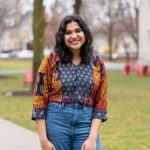
Abby Bernard (she/her) is a former Montana State University Writing Center tutor and research fellow; she currently works as a grant writer for local nonprofits in her community. Her education in American, Hispanic, and Native American Studies from Montana State University has given her the tools to explore challenges and opportunities with an interdisciplinary lens. She is endlessly curious about the power of language and how the work of words can bring about meaningful change.
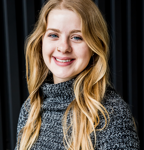
Nikki Chasteen (she/her) is the Assistant Director at the Nova Southeastern University (NSU) Writing and Communication Center. She holds a Master’s degree from NSU in Composition, Rhetoric, and Digital Media.
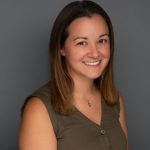
Kelly Concannon (she/her) is an Associate Professor of Writing and a Faculty Coordinator in the Writing and Communication Center at Nova Southeastern University.

Dana Lynn Driscoll (she/her) is a professor of English and the Director of the Jones White Writing Center at Indiana University of Pennsylvania in the United States. Her research focuses on learning theory, learning transfer, the development of writing expertise, and supporting advanced writers in disciplinary fields. She teaches writing for publication, research methods, and composition pedagogy in the doctoral program in Composition and Applied linguistics at IUP. She has been the recipient of numerous grants and awards, including the 2022 International Association for Writing Across the Curriculum’s best article award and the 2012 International Writing Center Association’s Article of the Year award. She has published over 50 peer-reviewed articles on writing centers, writing transfer, and composition pedagogy. She has served on multiple editorial boards and recently completed her three-year term as co-editor of Writing Spaces, an open access textbook series for first-year composition.

Kevin Dvorak (he/him), Ph.D., is the Executive Director of the Nova Southeastern University Writing and Communication Center; a Professor in the Department of Communication, Media, and the Arts; and Faculty Coordinator for the undergraduate First-Year Experience program. He is a past president of both the International Writing Centers Association and the Southeastern Writing Center Association, and he currently serves as a Senior Editor for the Journal of Faculty Development.
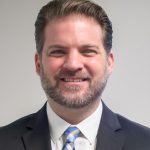
Kate Elliott (she/her) is an Interdisciplinary PhD candidate at SFU. Her past research has examined working lives of informal recyclers, cemeteries as public green space, and food security through community engagement. Currently, Kate tracks life stories of shopping carts. She is director of Wayfinding for Restorative Methods, supporting academics and artists to reduce carbon in their process. A former high school teacher, Kate has worked at SFU as a graduate writing facilitator for five years, and as an instructor (Urban Research Methods, Write-Minded, Urban Dirt and Object Biographies). She has also worked as a public health researcher, writer, translator, and cemetery assistant. Kate holds degrees from SFU (M.Urb), the University of Ottawa (B.Ed), and UBC (BA).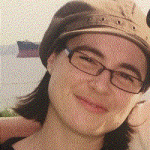
Mackenzie Graves (he/him) is currently completing his MEd in Educational Psychology, where his research focuses primarily on Alzheimer’s and other dementias, cognitive decline, literacy, and bilingualism. Mackenzie will be beginning a Master’s in Occupational Therapy in Fall 2023, and received his BA in Psychology with minors in Educational Psychology and Counselling at SFU. Mackenzie holds a research position where he is currently coordinating a meta-analysis on anxiety interventions for school-aged children, and he also has experience teaching at a local preparatory school. Recently, Mackenzie has been involved in research examining bilingual literacy development and has assisted in the designing of computer programs meant to facilitate the development of bilingual literacy. Mackenzie has served as a Teaching Assistant for both EDUC 315 – Individual and Developmental Differences in Language Acquisition and EDUC 422 – Learning Disabilities. He hopes that his work at the Student Learning Commons will help students meet their goals and gain confidence in their academic abilities.

Julia Lane (she/her) is a queer, vegan, feminist. She is also a white settler who lives, mothers, writes, and teaches on unceded Coast Salish territories. She holds a PhD in Arts Education from Simon Fraser University and her dissertation is about the application of a theatrical clowning to scholarly practices. Her master’s degree is from Trent University’s Canadian Studies and Indigenous Studies program and her M.A. thesis focused on environmental education. She completed her undergraduate studies at York University in the theater department, specializing in theater creation and performance. As a Writing Services Coordinator, Julia’s work focuses on undergraduate writing supports including writing workshops, Write Away, and the annual SLC writing contest. She also wrote and is constantly revising the SLC’s Inclusive and Antiracist Writing Guides. Julia cares about students’ well-being and ability to learn, and is committed to engaging in the critical work of dismantling white supremacy, colonialism, ableism, linguicism, and heteropatriarchy (which she understands as being interconnected in complex ways). Julia works for the benefit of all those who are focused on healing, decolonization, racial justice, land defense, love, and joy.
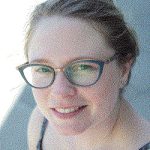
Christopher LeCluyse (he/him) is Professor of Literature, Media, and Writing and Writing Center Director at Westminster University[1] in Salt Lake City, Utah. His research relates medieval literacy, ancient rhetoric, religion, and now game studies to writing center praxis. He served as president of the Rocky Mountain Writing Centers Association and co-chaired the 2015 National Conference on Peer Tutoring in Writing and the 2017 International Writing Center Association Summer Institute. His work has appeared in Praxis: A Writing Center Journal, WLN: A Journal of Writing Center Scholarship, and the edited collections (E)Merging Identities: Graduate Students in the Writing Center, Writing Program Architecture: Thirty Cases for Reference and Research, and Unlimited Players: The Intersections of Writing Center and Game Studies. He also serves on the editorial review boards of the Writing Center Journal and Praxis.

Ryan Smith Madan (he/him) is an Associate Professor of Teaching at Worcester Polytechnic Institute (WPI), where he also directs the university Writing Center. He earned his PhD in English: Composition, Literacy, Pedagogy, & Rhetoric from the University of Pittsburgh. His research interests focus on the roles of writing instruction within institutions and the faculty-development strategies that can help instructors (and students) foreground competing purposes for writing at the university. His scholarship has been published in Writing on the Edge, Reader, and Harlot: A Revealing Look at the Arts of Persuasion.

Eric Mason (he/him) is an Associate Professor of writing in the Department of Communication, Media, and the Arts at Nova Southeastern University, and a Faculty Coordinator at the NSU Writing and Communication Center and associate professor with the NSU Department of Communication, Media, and the Arts. He is currently co-editor of the Southeastern Writing Center Association’s journal, SDC, and his scholarly work focuses on how the various modalities of composition intersect with cultural practices.

Michelle Miley (she/her) is Associate Dean of the College of Letters and Science and Director of the Writing Center at Montana State University. She is interested in thinking about how feminist theories and writing center values like participatory hospitality can revolutionize institutions. She is the past treasurer of IWCA and now serves as the Montana Rep for the Rocky Mountain Writing Center Association. Her previous work appears in journals such as WLN: A Journal for Writing Center Scholarship, Writing Center Journal, and Praxis.

Mohsen Hosseinpour Moghaddam (he/him) is a PhD student in Education at Simon Fraser University (SFU). He holds an MA in English Language Teaching from University of Tehran and an MEd in Educational Technology and Learning Design from SFU. Currently, he is working as a Graduate Writing and Learning Facilitator at SFU’s Student Learning Commons. As a Graduate Writing Facilitator, he delivers general and course-integrated writing workshops across disciplines for undergraduate students on topics ranging from argumentation to ethical use of research material in writing assignments. He also offers individual writing consultations to undergraduates across disciplines. As a Graduate Learning Facilitator, Mohsen helps undergraduate students with academic difficulty to develop and improve their academic learning strategies, such as study techniques, academic reading, note-taking, procrastination and time management.

Ashlee Moreno (she/her) is the Writing Program Coordinator at Pomona College. She’s been at Pomona for three years and joined the team just two weeks before campus evacuated for Covid-19! Her work with the Writing, Speaking, and Image Partners has been instrumental in helping restore the community of our physical space now that we’re back on campus, and her commitment to the students during the remote year was critical to their mental health and well-being.
Janine Morris (she/her) is an Associate Professor of writing in the Department of Communication, Media, and the Arts at Nova Southeastern University. She is also a faculty coordinator at the NSU Writing and Communication Center, where she works to support graduate student writers across the disciplines. She is co-editor of Affect and Emotions in Writing Centers (Parlor Press, 2022). Her work has also appeared in WLN, Composition Studies, College English, Peitho, Southern Discourse in the Center, Communication Center Journal, and various edited collections.

Kaylee de la Motte (she/her) is a graduate of Concordia University Irvine and is pursuing her MA in Social Science at UC Irvine. She hopes to become a professor of Sociology.
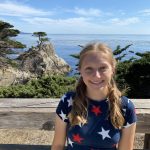
Makenna Myers (she/her) is an Adjunct Professor of Writing at Concordia University Irvine. She holds an MFA in Writing for Children and Young Adults from Hamline University in St. Paul, Minnesota.
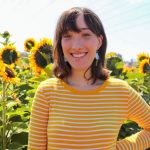
Emily Poland (she/her) is a Junior at Dickinson College from Philadelphia, Pennsylvania. She is a sociology major with a minor in French and Francophone Studies. Emily is currently studying abroad at Université de Toulouse II (Jean-Jaurès) in Toulouse, France. Back on campus, she works as an English peer tutor and research associate in the Dickinson College Writing Center and has served as a Writing Associate for a first year course which studied the work of Zadie Smith. In her free time, she is a DJ for WDCV, the college radio station.
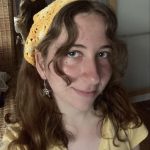
Kristina Reardon (she/her) is a senior lecturer in English and Education Studies at Amherst College, where she also serves as director of Intensive Writing and director of Humanities and Social Science in the Summer Bridge Program. She was previously associate director of the Center for Writing at the College of the Holy Cross and also director of the Writer’s Workshop, the Center’s tutoring program. Her research has appeared in Writing Center Journal, WLN: A Writing Center Journal, Journal of Writing Assessment, Journal of Response to Writing, Journal of Education for Teaching, and the edited collection Critical Reading and Writing in the Era of Fake News (Peter Lang, 2020).
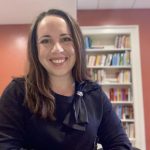
Christina Santana (she/her) is an associate professor of English (writing) at Worcester State University. She gravitates toward working collaboratively—especially across different experiences and expertise—and on projects that enable/empower groups to contribute to the common good.
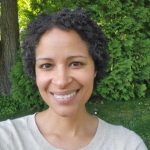
Andrea Scott(she/her), Jack Friedman, Ryann Liljenstolpe (she/they), Dominique Morra, Alex Rodriguez, and Gabriel Schermanare are a collective of writers who designed and led their study at Pitzer College during the pandemic. Andrea Scott, then Writing Center Director and now Director of College Writing, helped facilitate their work and the collective drafting of the article.
Kirstie Skogerboe (she/her) is the outgoing Assistant Director of Concordia University Irvine’s Writing Studio and the incoming Digital Communications Coordinator for The Association of Free Lutheran Congregations. She holds a B.A. in Liberal Arts from Concordia.
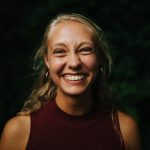
Seth Skogerboe (he/him) is a Concordia University Irvine graduate, a writing tutor, and a freelance editor. He’s pursuing a Master of Arts in Liberal Arts at St. John’s College in Santa Fe, NM.

Jenny Thomas (she/her) is Interim Director of College Writing and Language Diversity at Pomona College. Coming to writing studies from the world of Teaching English to Speakers of Other Languages, she has worked with multilingual writers for over two decades. Her chapter “Do I Talk Too Much? Exploring Dominant and Passive Participation Dynamics” was published by TESOL in Language Teacher Research in Europe. Presently, she is focusing on disability in academic contexts—its impact on listening, speaking, writing and classroom participation. She strives to equip tutors to respond effectively and generously to students’ ideas, especially on the level of the sentence.
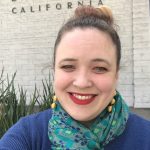
Ben Warren (he/him) is a Junior at Dickinson College majoring in Data Analytics with a minor in History, though he is currently studying abroad in Mendoza, Argentina at the Universidad Nacional de Cuyo. He has worked at the Norman M. Eberly Multilingual Writing Center since the beginning of his sophomore year, where he has served as the Writing Associate for a first-year seminar about critical cartography and participated in the undergraduate tutor research program. On campus, he writes and edits for The Dickinsonian, the college’s student newspaper.

Anna Wendel (she/her) is a Junior at Dickinson College from Yardley, PA. She majors in English Literature with a minor French and Francophone Studies. She will spend the upcoming year studying at Mansfield College of Oxford focusing on Victorian literature and history. She works in the writing center as a peer tutor and research associate, and has also worked as a Writing Associate for two first year classes that focus respectively on writing the personal essay and using literary lenses to analyze Victorian texts. She is a member of the English Majors Committee and student research has won two departmental college prizes in 2022 and 2023.

Niah Wilson (she/her) is a former Montana State University Writing Center tutor, where she also studied Criminology and English Literature. She currently teaches 8th grade English Language Arts, working to help students understand the power words carry.
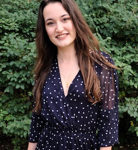
Kara Wittman (she/her) is Associate Teaching Professor of English at the University of California, Berkeley. She was the founding director of the Center for Speaking, Writing, and the Image at Pomona College and served as Director of College Writing at Pomona from 2016 to 2023. Her work has appeared in College Composition and Communication, WLN: A Journal of Writing Center Scholarship, the Edinburgh Companion to the Essay, The Critic as Amateur, Failure Pedagogies: Learning and Unlearning What It Means to Fail, and is forthcoming in the Cambridge History of the British Essay and Workplace: a Journal of Academic Labor. She is the editor, with Evan Kindley, of the Cambridge Companion to the Essay.

Andrew H. Yim (he/him) is an adjunct faculty member at Duquesne University and a 4th year PHD candidate in Composition and Applied Linguistics (CAL) at Indiana University of Pennsylvania (IUP). He is one of the graduate co-editors of The Peer Review and previously worked as the Assistant Director for the University of Nevada, Las Vegas (UNLV) and IUP writing centers. His research interests include investigating how undergraduate and graduate multilingual writers’ non-academic writing practices affect their academic ones.
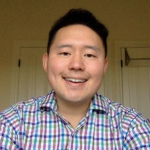
- Westminster College changed its name to Westminster University on July 1, 2023. ↵
